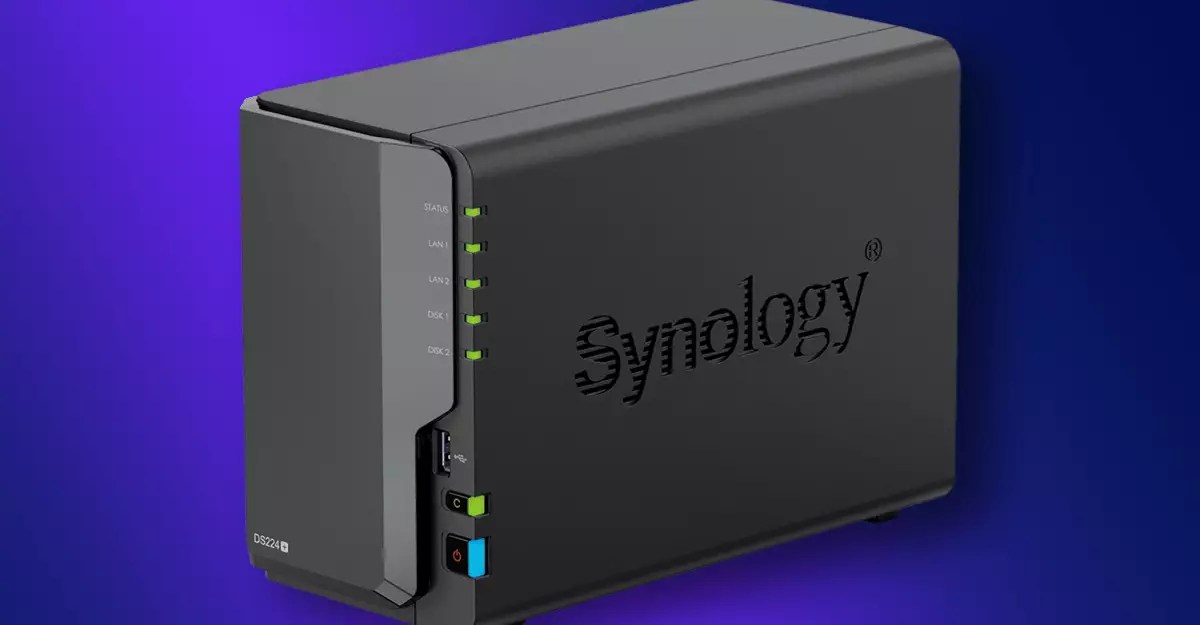In a landscape that thrives on consumer choice, Synology’s imminent restrictions regarding third-party hard drives in its future Network Attached Storage (NAS) systems have stirred significant discussion. Slated for release in 2025, these new directives signal a noticeable shift in the way Synology aims to curate its ecosystem, with implications that extend far beyond simple hardware choices. While many existing users may breathe a sigh of relief, knowing that their current systems will remain unaffected, the upcoming changes raise critical questions about accessibility and user autonomy within digital storage solutions.
Restrictions and Their Implications
To encapsulate Synology’s forthcoming decisions, the company has indicated that only drives either manufactured by Synology or those that meet its strict certification criteria will utilize the complete suite of features and support. This decision is ostensibly grounded in a desire to enhance stability and performance, as claimed by Synology, which points to their internal testing revealing that rigorously validated drives are less prone to failure. However, this deduction carries the weight of significant consequences for potential buyers and their ownership experience.
The implications of single-sourcing hard drives are conspicuous: fewer options translate into higher prices and less room for consumer discretion. For many individuals and small businesses, the flexibility of choosing more affordable, trusted hard drives from third-party vendors has been a major appeal of NAS systems. What do these users do when the choices they once had are substantially narrowed? The restrictions aren’t just administrative; they’re an ideological pivot, signaling a broader trend regarding ownership and proprietary ecosystems.
The Pushback from the User Community
Given the pervasive concerns swirling around corporate controls over consumer hardware, it’s not surprising that enthusiasts and tech advocates are expressing discontent. While Synology’s intentions may be anchored in creating a more robust and reliable product, consumers may view these restrictions as a betrayal of the DIY spirit of NAS systems. NAS devices have long been celebrated for their customizability, allowing users to mix and match components based on their preferences and budgetary constraints.
Moreover, the association of these restrictions with well-known industry practices—such as printer manufacturers curbing the use of third-party ink—sparks further outrage. This historical precedent casts a long shadow, suggesting an ulterior motive that could benefit Synology at the expense of users’ wallets. While Synology’s commitment to quality is admirable, the company must tread carefully; innovation should not come at the cost of accessibility and transparency.
Staying Competitive in a Dynamic Market
Industry dynamics do not favor complacency. As Synology rolls out these restrictions, competitors who maintain an open approach could seize the opportunity to capture market share. If other manufacturers refuse to impose similar limitations, they may provide an attractive alternative that emphasizes consumer freedom and financial efficiency. This strategy could resonate particularly well with tech-savvy consumers who prioritize flexibility and performance without the constraints of proprietary systems.
Moreover, Synology ought to realize that loyalty among existing customers hinges less on mandatory compliance with new restrictions and more on maintaining a healthy marketplace. An open dialogue discussing why these limitations are necessary—coupled with transparent pricing models for drives—might quell some of the backlash. By engaging with their user base and presenting their business decisions as efforts to enhance value, Synology could potentially mitigate ill-will and strengthen customer relations.
Looking to the Future
As Synology’s new NAS models make their debut in 2025, the tech community will vigilantly observe the reactions to these pronounced changes. Ultimately, the evolution of any technology brand hinges on its ability to embrace user feedback as a cornerstone of its operational ethos. While the intent behind these upcoming restrictions may be to bolster reliability and performance, the success of this strategy will largely depend on how effectively Synology can balance quality control with user choice, interaction, and satisfaction. The challenge lies in fostering a brand ethos that prioritizes customer engagement over rigid control, navigating a fine line between innovation and user autonomy.


Leave a Reply